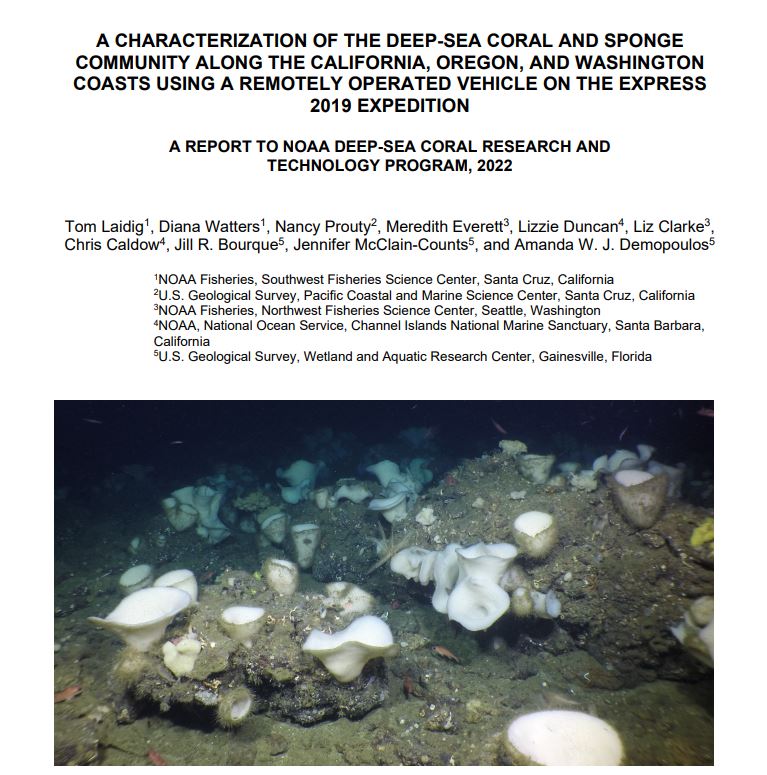
In October 2019, a team of scientists and engineers set out on a month-long research cruise along the west coast to characterize deep-sea coral and sponge habitats using a remotely operated vehicle (ROV) aboard NOAA Ship Reuben Lasker. This work was part of the West Coast Deep-sea Coral Initiative (WCDSCI), a four-year initiative funded by NOAA’s Deep-Sea Coral Research Technology Program. The effort also leveraged partners of EXPRESS (Expanding Pacific Research and Exploration of Submerged Systems); a multi-year, multi-institution cooperative research campaign in deep sea areas of California, Oregon, and Washington, including the continental shelf and slope.
As part of the west-coast wide survey, three sites were surveyed in Monterey Bay National Marine Sanctuary: Cabrillo Canyon; West Carmel Canyon; and Point Sur Slot Canyons (all recently reopened Essential Fish Habitat Conservation Areas). This survey serves as a basic characterization, and can be referred to on future visits.
A NOAA Technical Memo is now available (Laidig et al. 2022), summarizing the 2019 west coast ROV survey off Washington, Oregon and California:
Additional information on the 2019 research cruise is available at:
Research Cruise to Survey Deep-Sea Corals, Sponges, and Fish Habitat Along the West Coast